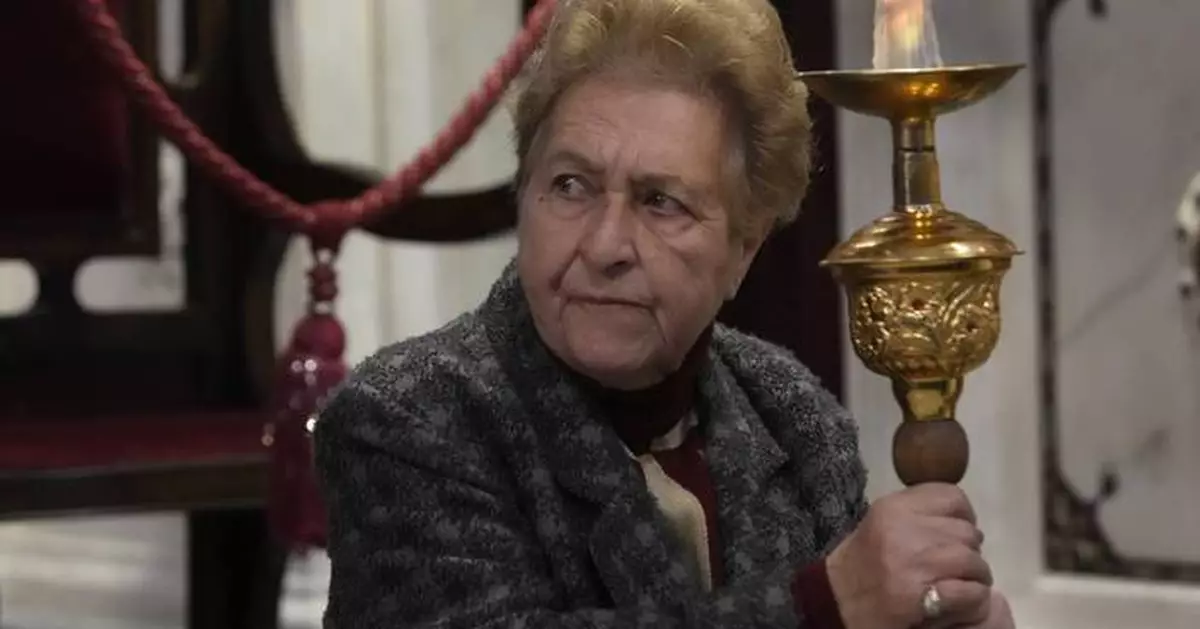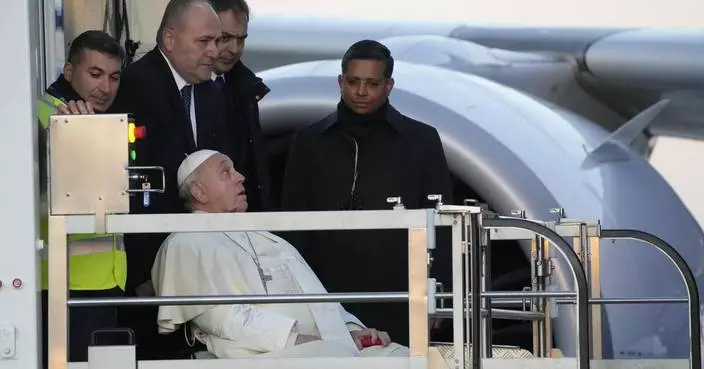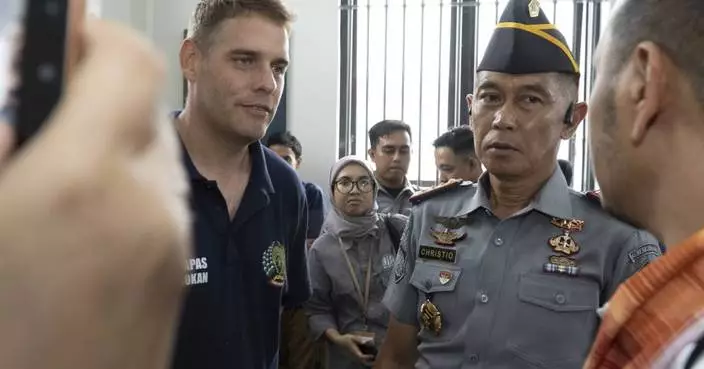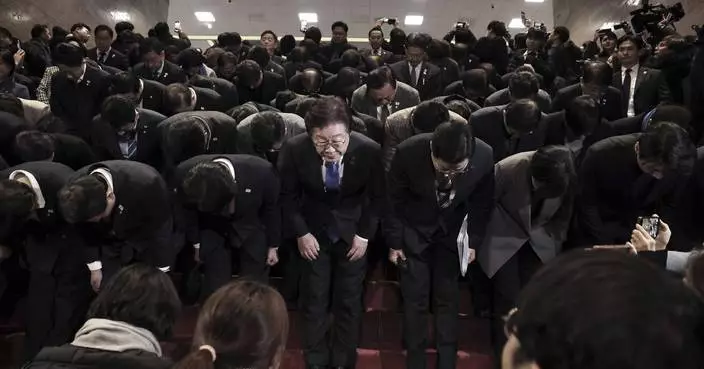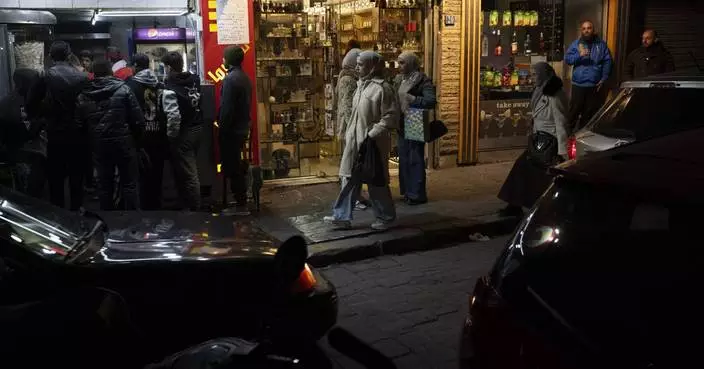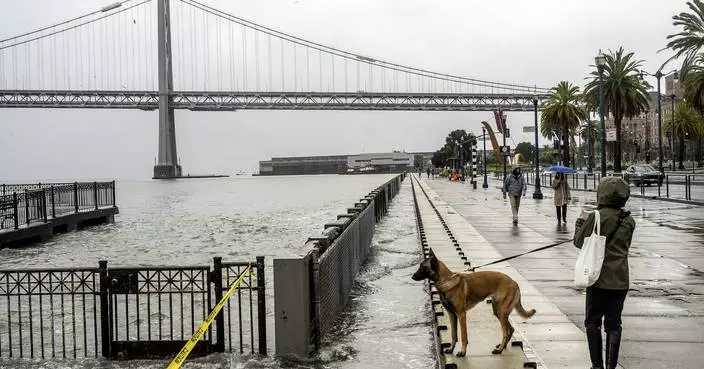DAMASCUS, Syria (AP) — A U.N. envoy on Sunday called for a quick end to Western sanctions against Syria as the country’s new leaders and regional and global powers begin to chart a path forward following the fall of President Bashar Assad.
The Syrian government has been under strict sanctions by the United States, the European Union and others for years as a result of Assad’s brutal response to what began as peaceful anti-government protests in 2011 and later spiraled into a civil war.
Click to Gallery
This frame grab from a video provided on Sunday, Dec. 15, 2024, shows United Nations' special envoy to Syria, Geir Pederson speaking to journalists upon his arrival to Damascus, Syria. (AP Photo)
A Syrian Christians woman lights a candle during the first Sunday Mass since Syrian President Bashar Assad's ouster, at Mariamiya Orthodox Church in old Damascus, Syria, Sunday, Dec. 15, 2024. (AP Photo/Hussein Malla)
A Syrian Christians man prays during the first Sunday Mass since Syrian President Bashar Assad's ouster, at Mariamiya Orthodox Church in old Damascus, Syria, Sunday, Dec. 15, 2024. (AP Photo/Hussein Malla)
Syrian attend the first Sunday Mass since Syrian President Bashar Assad's ouster, at Mariamiya Orthodox Church in old Damascus, Syria, Sunday, Dec. 15, 2024. (AP Photo/Hussein Malla)
Syrian Christians attend the first Sunday Mass since Syrian President Bashar Assad's ouster, at Mariamiya Orthodox Church in old Damascus, Syria, Sunday, Dec. 15, 2024. (AP Photo/Hussein Malla)
A Syrian boy look on as he carries bread in the city of Aleppo, Syria, Saturday, Dec. 14, 2024. (AP Photo/Khalil Hamra)
A Syrian Christians woman cries, as she attends the first Sunday Mass since Syrian President Bashar Assad's ouster, at Mariamiya Orthodox Church in old Damascus, Syria, Sunday, Dec. 15, 2024. (AP Photo/Hussein Malla)
A Syrian Christian woman attends the first Sunday Mass since Syrian President Bashar Assad's ouster, at Mariamiya Orthodox Church in old Damascus, Syria, Sunday, Dec. 15, 2024. (AP Photo/Hussein Malla)
The rebel alliance that ousted Assad and broke his iron grip on the country just days ago faces a nation wracked and deeply isolated by tough international sanctions, which compounded Syria’s previous economic troubles. But other challenges also complicate Syria's rebuilding: the new transitional leadership has not laid out a clear vision how the country will be governed, and the main group behind the offensive is saddled with a terrorist designation by the U.S.
The U.N. envoy to Syria, Geir Pedersen, told reporters in Damascus that setting Syria back on track after the past few tumultuous weeks will be helped by a speedy relief of sanctions.
“We can hopefully see a quick end to the sanctions so that we can see really a rallying around building of Syria,” he said.
Parts of Syria’s biggest cities remain damaged or destroyed by years of fighting. Reconstruction has been stymied largely by sanctions that aimed to prevent rebuilding of damaged infrastructure and property in government-held areas in the absence of a political solution.
Pedersen traveled to Damascus to meet with officials from the new interim government set up by the former opposition forces who toppled Assad, led by the Islamic militant group Hayat Tahrir al-Sham, or HTS. Officials in Washington have indicated that the Biden administration is considering removing the group's terror designation. U.S. Secretary of State Antony Blinken said Saturday that officials have been in direct contact with the group.
Over the weekend, Blinken attended an emergency meeting in Jordan where he said he secured the backing of the 12 foreign ministers from the Arab League, Turkey and top officials from the European Union and United Nations on how Syria should be run after decades of Assad family rule.
They agreed that the new government should respect the rights of minorities and women, prevent terror groups from taking hold, ensure humanitarian aid reaches those in need, and secure and destroy any remaining Assad-era chemical weapons. Blinken has promised that the United States would recognize and support a new government that met those principles.
With the clock on the Biden administration running out, it isn’t clear what approach President-elect Donald Trump will take on Syria.
Syria's interim government is set to rule until March, but it has not yet made clear the process under which a new permanent administration would replace it.
“We need to get the political process underway that is inclusive of all Syrians,” Pedersen said. “That process obviously needs to be led by the Syrians themselves.”
He called for “justice and accountability for crimes” committed during the war and for the international community to step up humanitarian aid.
In a sign of Syrians’ yearning for a return to normalcy, even after the whirlwind rebel offensive of the past weeks, schools in Damascus reopened Sunday for the first time since the insurgents marched in the capital.
At Nahla Zaidan school in the capital’s Mezzah neighborhood, teachers hoisted the three-starred revolutionary flag in place of the former government’s two-starred Syrian flag.
“Syria is trying to build up this country with these children who came. Although I think some of them are afraid, they came to build Syria and to live the victories of this country,” said Maysoun Al-Ali, director of the school.
“God willing, there will be more development, more security and more construction in this beloved country.”
Associated Press writer Abdulrahman Shaheen contributed to this report.
Follow the AP’s Syria coverage at https://apnews.com/hub/syria
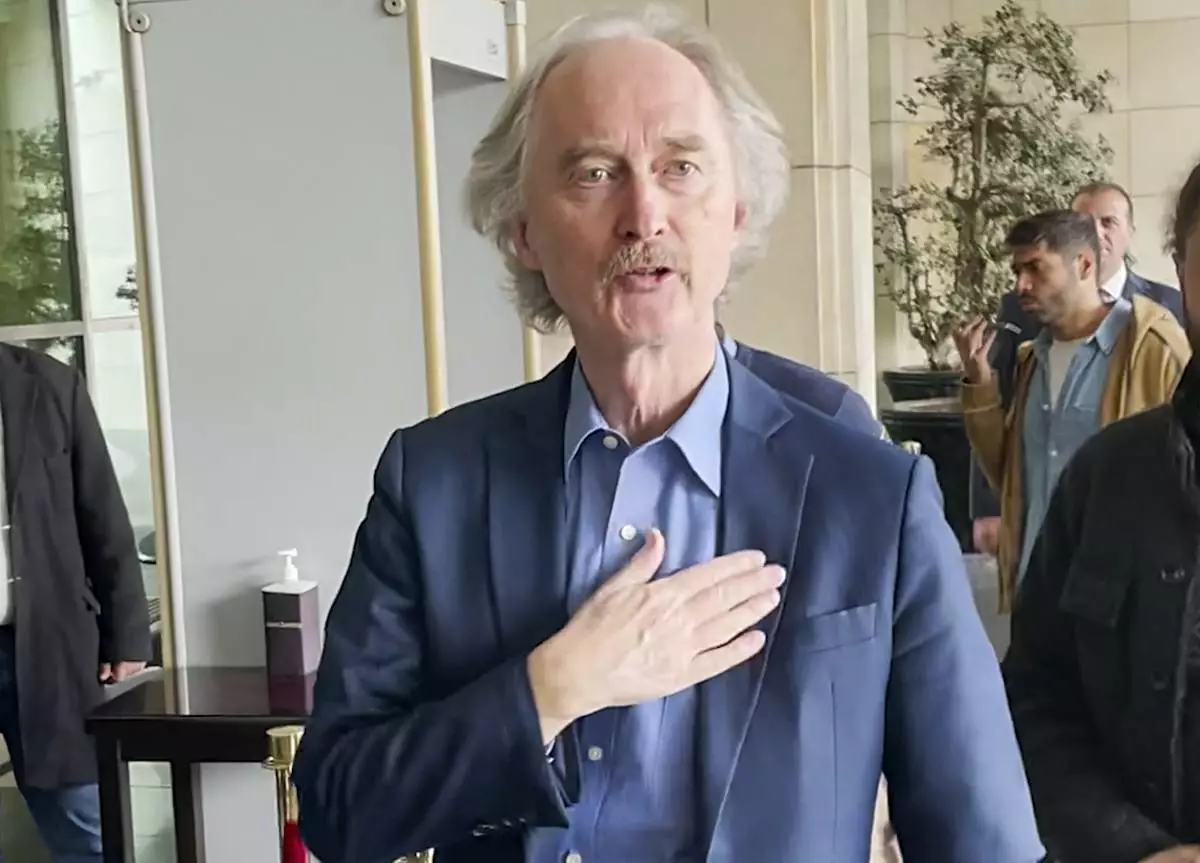
This frame grab from a video provided on Sunday, Dec. 15, 2024, shows United Nations' special envoy to Syria, Geir Pederson speaking to journalists upon his arrival to Damascus, Syria. (AP Photo)
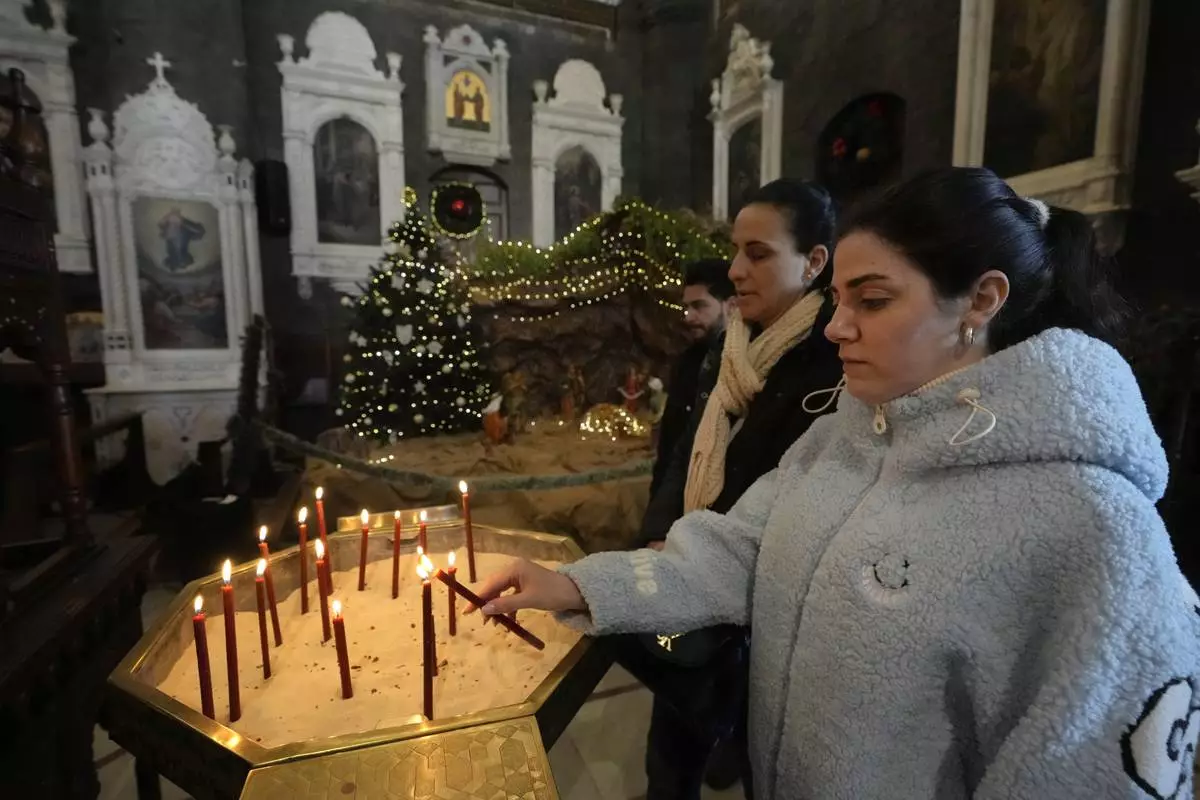
A Syrian Christians woman lights a candle during the first Sunday Mass since Syrian President Bashar Assad's ouster, at Mariamiya Orthodox Church in old Damascus, Syria, Sunday, Dec. 15, 2024. (AP Photo/Hussein Malla)
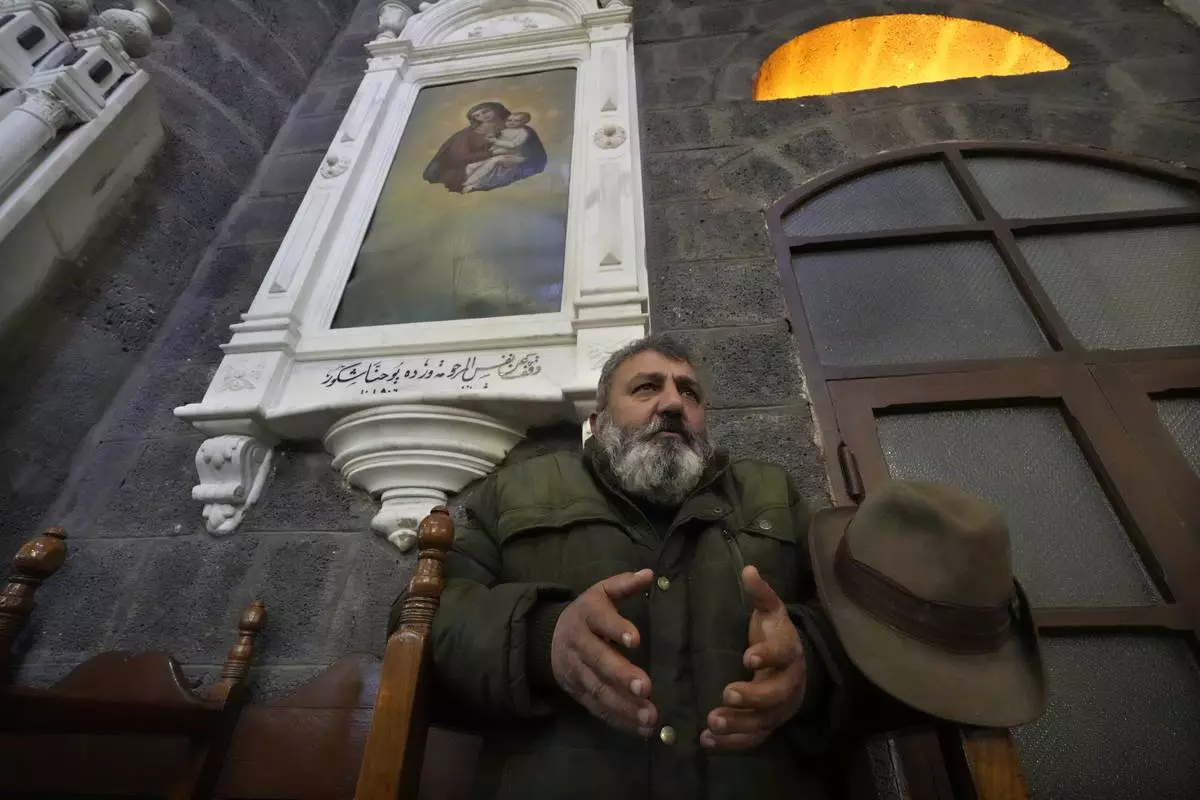
A Syrian Christians man prays during the first Sunday Mass since Syrian President Bashar Assad's ouster, at Mariamiya Orthodox Church in old Damascus, Syria, Sunday, Dec. 15, 2024. (AP Photo/Hussein Malla)
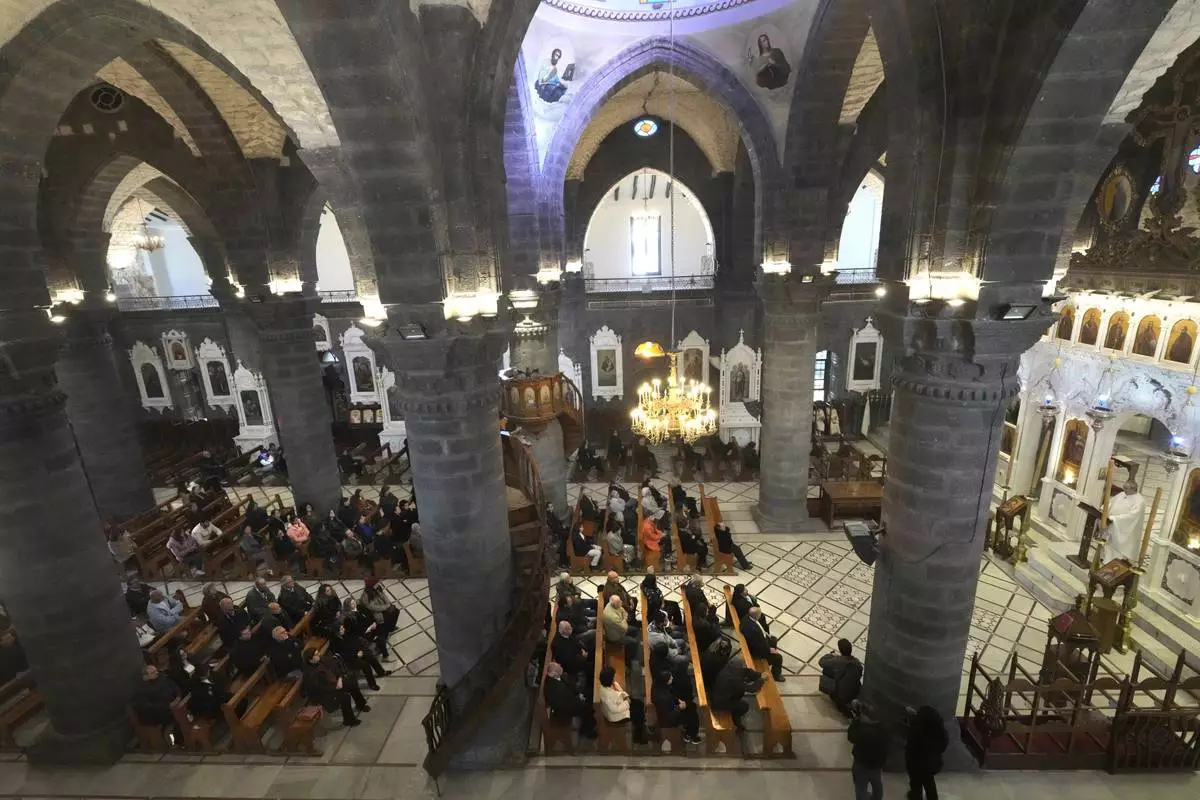
Syrian attend the first Sunday Mass since Syrian President Bashar Assad's ouster, at Mariamiya Orthodox Church in old Damascus, Syria, Sunday, Dec. 15, 2024. (AP Photo/Hussein Malla)
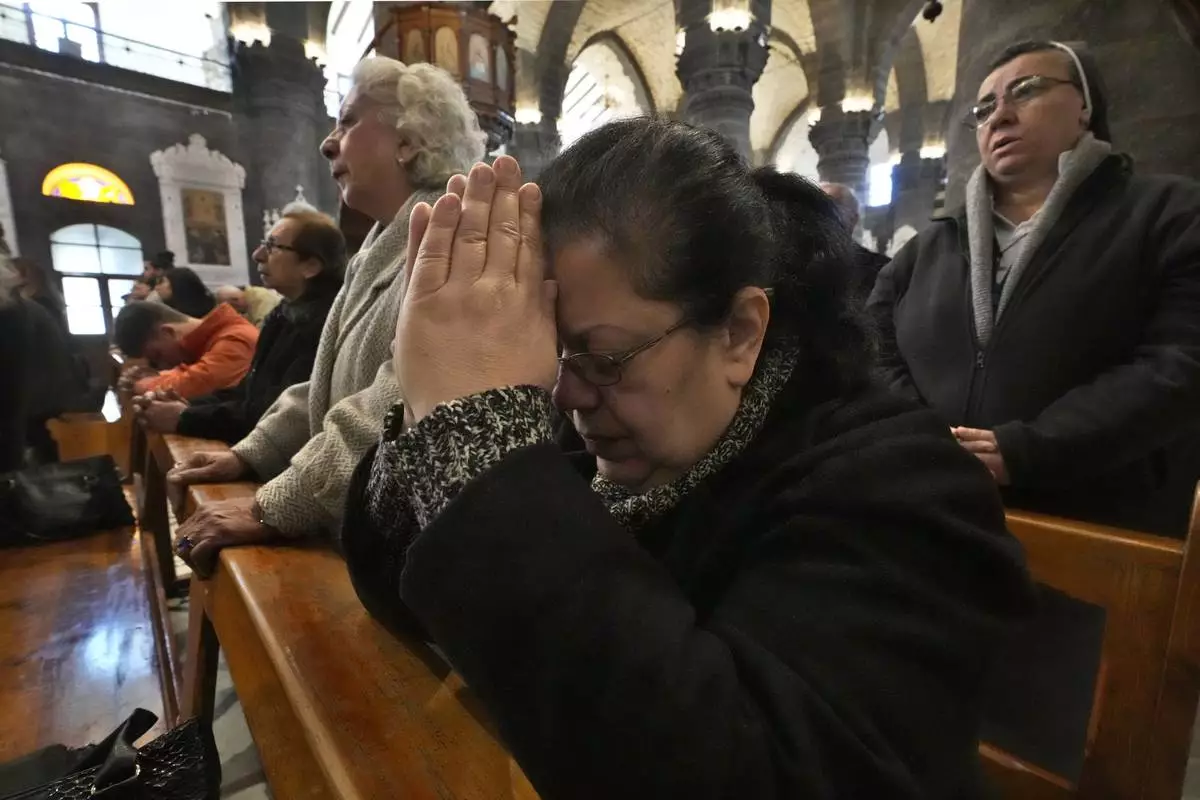
Syrian Christians attend the first Sunday Mass since Syrian President Bashar Assad's ouster, at Mariamiya Orthodox Church in old Damascus, Syria, Sunday, Dec. 15, 2024. (AP Photo/Hussein Malla)
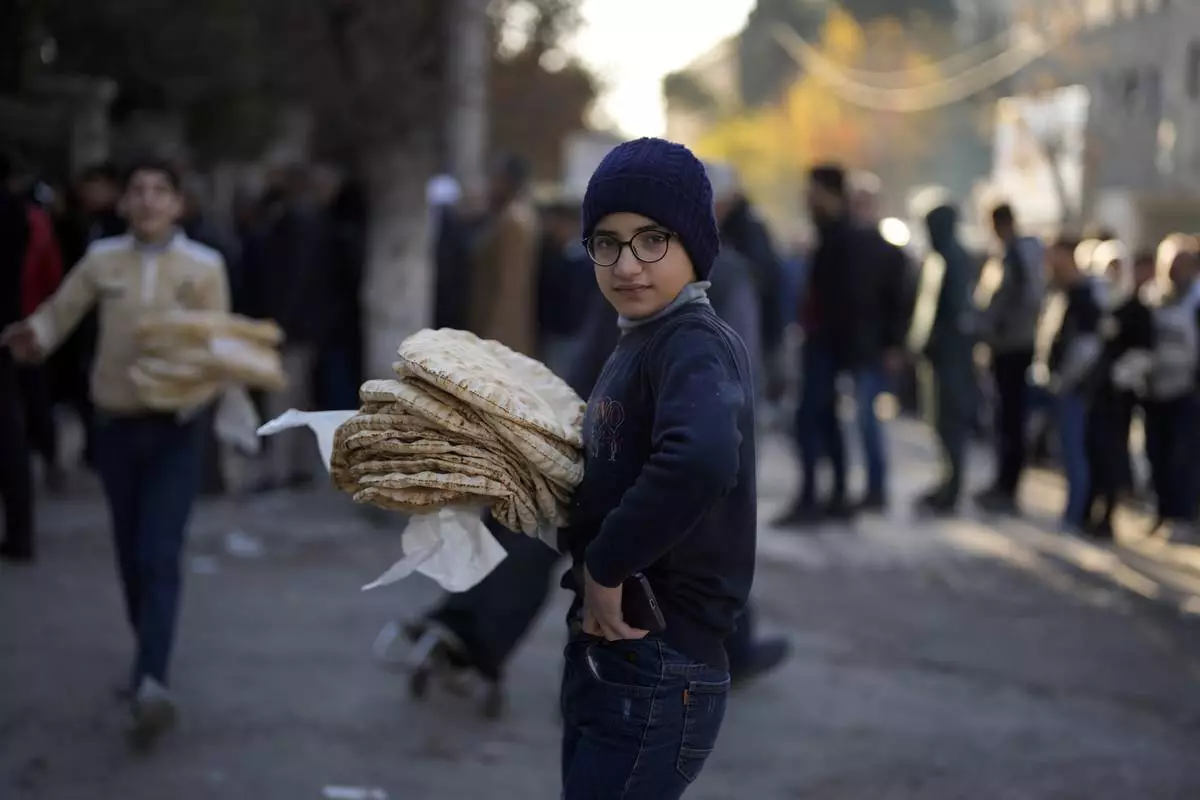
A Syrian boy look on as he carries bread in the city of Aleppo, Syria, Saturday, Dec. 14, 2024. (AP Photo/Khalil Hamra)
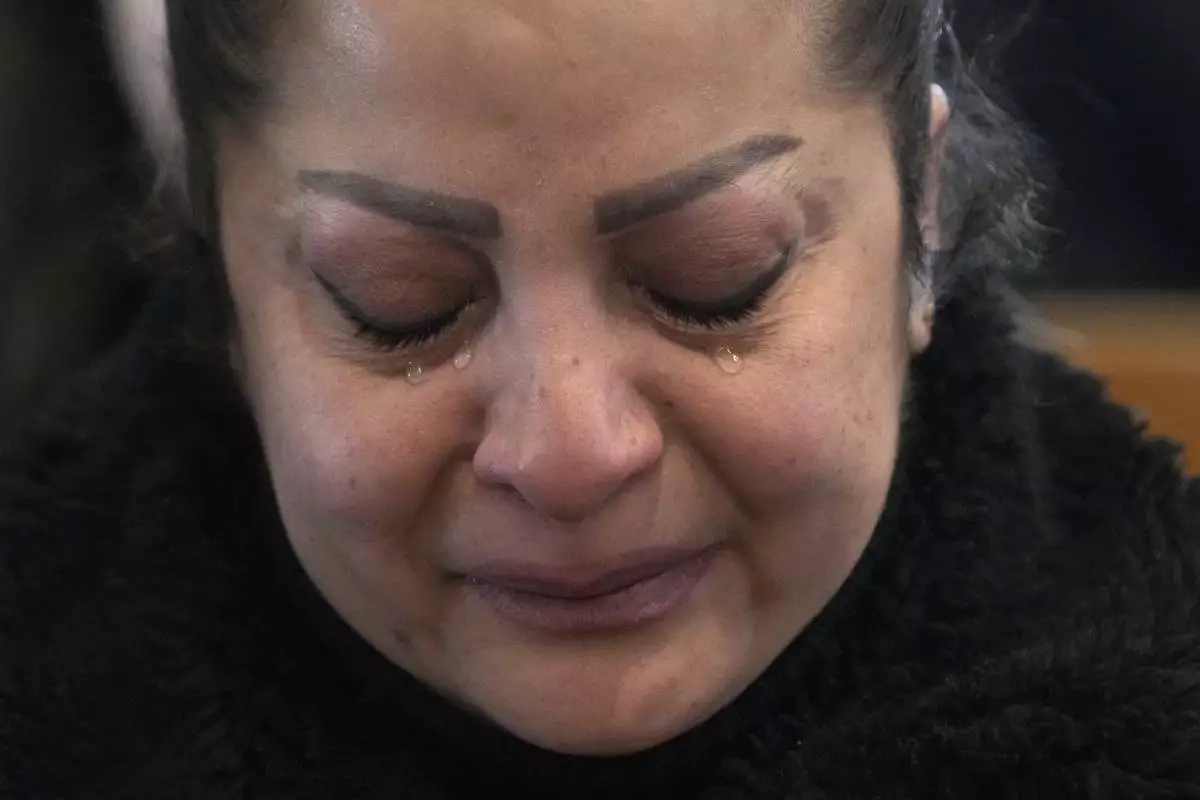
A Syrian Christians woman cries, as she attends the first Sunday Mass since Syrian President Bashar Assad's ouster, at Mariamiya Orthodox Church in old Damascus, Syria, Sunday, Dec. 15, 2024. (AP Photo/Hussein Malla)
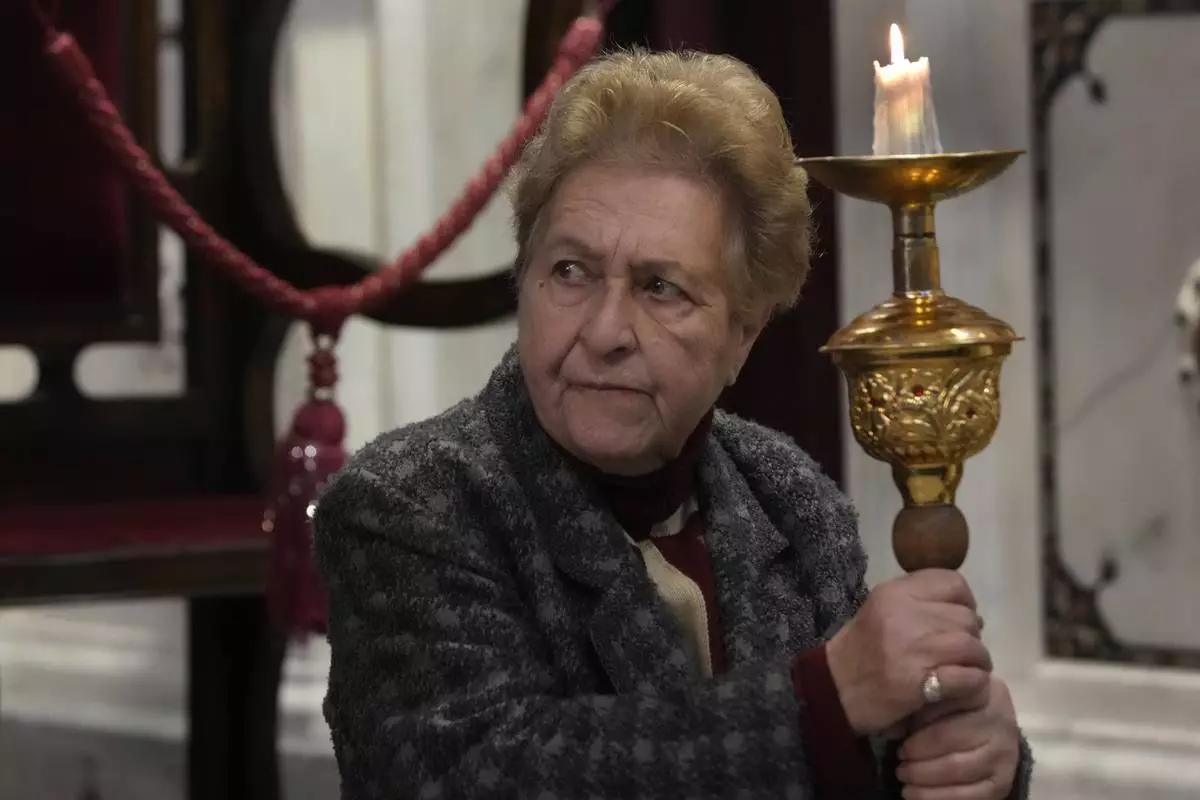
A Syrian Christian woman attends the first Sunday Mass since Syrian President Bashar Assad's ouster, at Mariamiya Orthodox Church in old Damascus, Syria, Sunday, Dec. 15, 2024. (AP Photo/Hussein Malla)
CAPE TOWN, South Africa (AP) — At least 11 people have died after Cyclone Chido caused devastating damage in the French territory of Mayotte in the Indian Ocean, France's Interior Ministry said Sunday.
The intense tropical cyclone has now made landfall on the east coast of Africa, where aid agencies are warning of more loss of life and severe damage in northern Mozambique.
The French Interior Ministry said it was proving difficult to get a precise tally of the dead and injured in Mayotte amid fears the death toll will increase. A hospital in Mayotte reported that nine people were in critical condition there and 246 others were injured.
The tropical cyclone blew through the southeastern Indian Ocean, also affecting the nearby islands of Comoros and Madagascar. Mayotte was directly in the path of the cyclone and suffered extensive damage on Saturday, officials said. The prefect of Mayotte said it was the worst cyclone to hit Mayotte in 90 years.
French Interior Minister Bruno Retailleau said Saturday night after an emergency meeting in Paris that there were fears that the death toll in Mayotte “will be high” and the island had been largely devastated.
Prime Minister François Bayrou, who took office on Friday, said public infrastructure on Mayotte had been severely damaged or destroyed, including the main hospital and the airport. He said many people living in precarious shacks in slum areas have faced very serious risks.
Chido brought winds in excess of 220 kph (136 mph), according to the French weather service, making it a category 4 cyclone, the second strongest on the scale.
Mayotte has a population of just over 300,000 spread over two main islands about 800 kilometers (500 miles) off Africa’s east coast. It is France's poorest island and the European Union's poorest territory. In some parts, entire neighborhoods were flattened, while local residents reported many trees had been uprooted and boats had been flipped or sunk.
The French Interior Ministry said 1,600 police and gendarmerie officers have been deployed to “help the population and prevent potential looting.”
Some 110 rescuers and firefighters have been deployed in Mayotte from France and the nearby territory of Reunion, and an additional reinforcement of 140 people was due to be sent on Sunday. Supplies were being rushed in on military aircraft and ships.
French President Emmanuel Macron said he was closely monitoring the situation, while Pope Francis offered prayers for the victims of the cyclone while on a visit Sunday to the French Mediterranean island of Corsica.
Chido continued its eastern trajectory and made landfall early Sunday in Mozambique on the African mainland, where emergency officials had warned that 2.5 million people could be impacted in two northern provinces, Cabo Delgado and Nampula. Landlocked Malawi and Zimbabwe are also preparing to be affected, with both countries warning they might have to evacuate people from low-lying areas because of flooding.
In Mozambique, the United Nations Children's Fund said Cabo Delgado province, home to around 2 million people, had been hit hard.
“Many homes, schools and health facilities have been partially or completely destroyed and we are working closely with government to ensure continuity of essential basic services,” UNICEF said. “While we are doing everything we can, additional support is urgently needed.”
UNICEF Mozambique spokesman Guy Taylor said in a video posted by the group from Cabo Delgado's regional capital that alongside the immediate impact of the cyclone, communities now face the prospect of being cut off from schools and health facilities for weeks.
December through to March is cyclone season in the southeastern Indian Ocean and southern Africa has been pummeled by a series of strong ones in recent years. Cyclone Idai in 2019 killed more than 1,300 people in Mozambique, Malawi and Zimbabwe. Cyclone Freddy left more than 1,000 dead across several countries last year.
The cyclones bring the risk of flooding and landslides, but also stagnant pools of water may later spark deadly outbreaks of the waterborne disease cholera as well as dengue fever and malaria.
Studies say the cyclones are getting worse because of climate change. They can leave poor countries in southern Africa, which contribute a tiny amount to global warming, having to deal with large humanitarian crises, underlining their call for more help from rich nations to deal with the impact of climate change.
——
Corbet reported from Paris.
——
AP Africa news: https://apnews.com/hub/africa
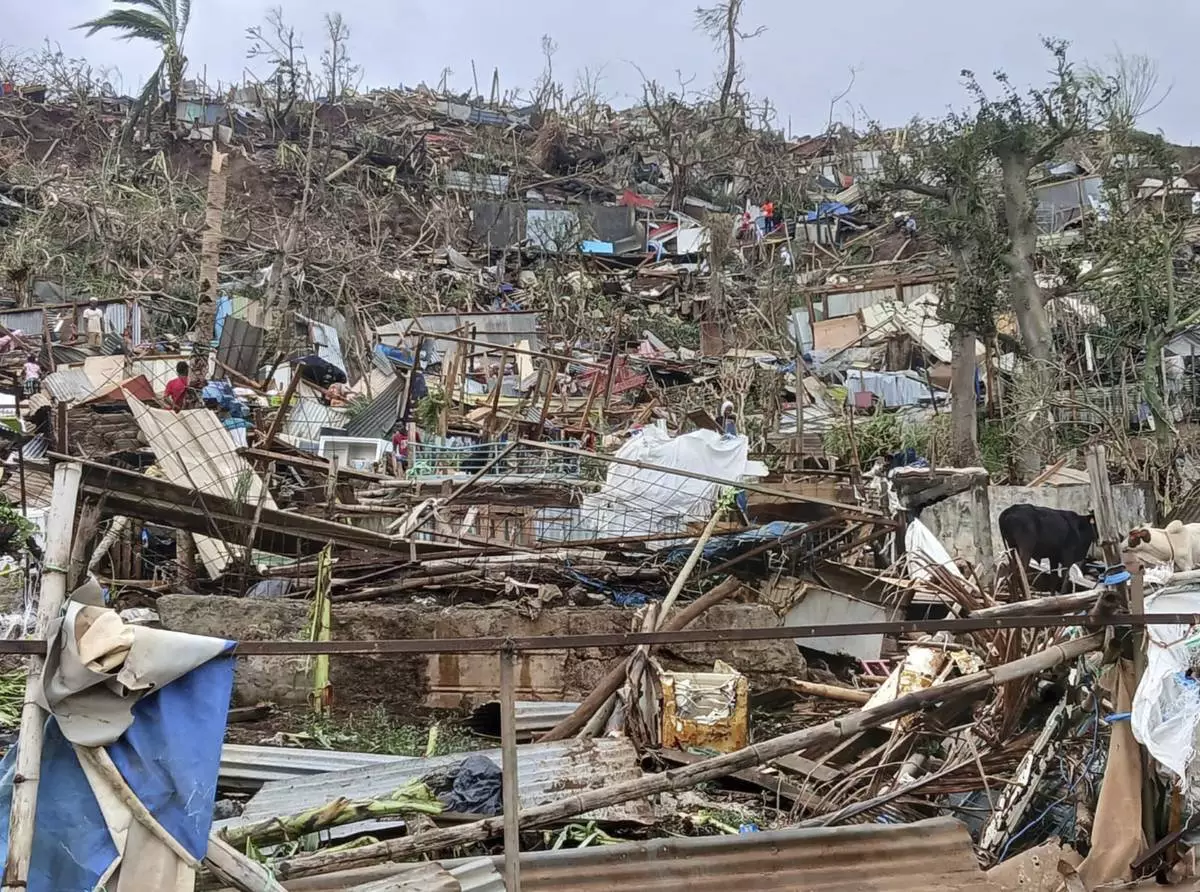
This undated photo provided by NGO Medecins du Monde on Sunday, Dec. 15, 2024, shows a devastated hill on the French territory of Mayotte in the Indian Ocean, after Cyclone Chido caused extensive damage with reports of several fatalities. (Medecins du Monde via AP)










